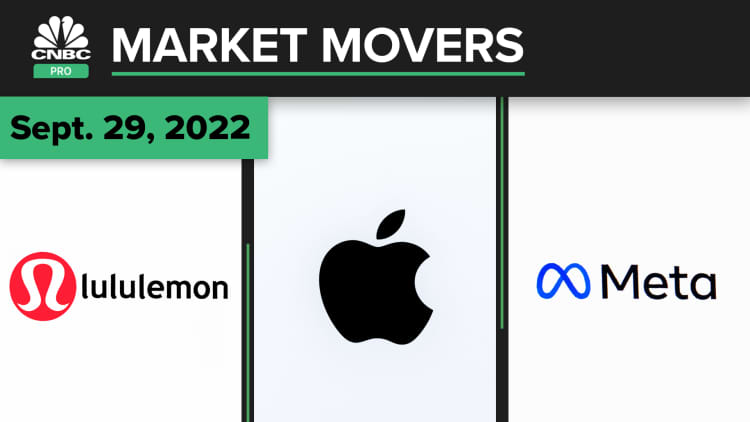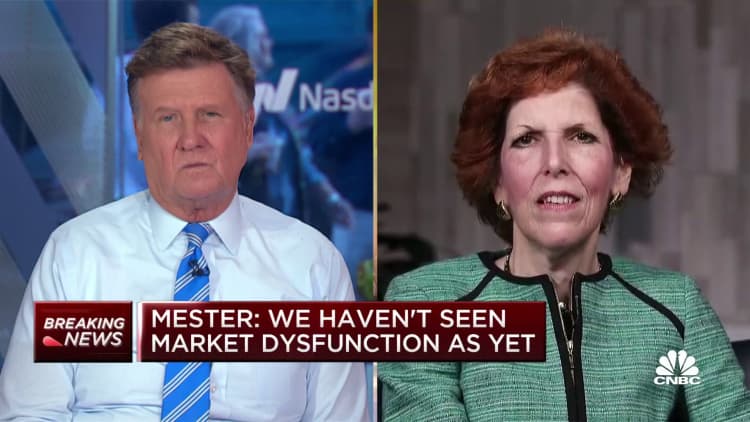
Stocks resumed their 2022 sell-off on Thursday, sending the S&P 500 to a new low for the year, as fears swirled that a recession won't stop the Federal Reserve from raising interest rates.
The sell-off was broad-based and was led by Apple, which tumbled as a major investment bank downgraded the one-time bear market outperformer. The stock closed down 4.9%.
The S&P 500 declined 2.1% to 3,640.47 in a new closing low for the year. During the session, it also fell to a new 2022 intraday low of 3,610.40. This is also its lowest intraday level since 2020.
Meanwhile, the Dow Jones Industrial Average plunged 458.13 points, or 1.54%, to 29,225.61. The tech-heavy Nasdaq Composite fell 2.84% to 10,737.51.
The moves followed a broad rally for stocks Wednesday, as the Bank of England said it would purchase bonds in an effort to help steady its financial markets and the cratering British pound. Sterling has stooped to record lows against the U.S. dollar in recent days.
The Dow on Wednesday gained more than 500 points, or 1.9%, while the S&P 500 rose nearly 2%, both snapping six-day losing streaks.
"[We] remain skeptical that the calmer mood in markets on Wednesday marks an end to the recent period of elevated volatility or risk-off sentiment," UBS' Mark Haefele wrote in a Thursday note. "For a more sustained rally, investors will need to see convincing evidence that inflation is coming under control, allowing central banks to become less hawkish."
The 10-year U.S. Treasury yield rebounded to top 3.7%. A day prior, it posted its biggest one-day drop since 2020 after briefly surpassing 4%.
A stronger-than-expected jobless claims report didn't help sentiment. This built on the notion that the Fed will keep raising rates to fight inflation without concern that it could hurt the labor market.
Cleveland Federal Reserve President Loretta Mester said in a Thursday appearance on CNBC's "Squawk Box" that interest rates are not yet restrictive, saying there's more to be done to bring down inflation.
The major averages are on pace for a losing week and a month of sharp declines. The Nasdaq Composite is leading the monthly losses, down 9.1%, while the Dow and S&P are on pace to end September roughly 7.3% and 7.9% lower, respectively.


